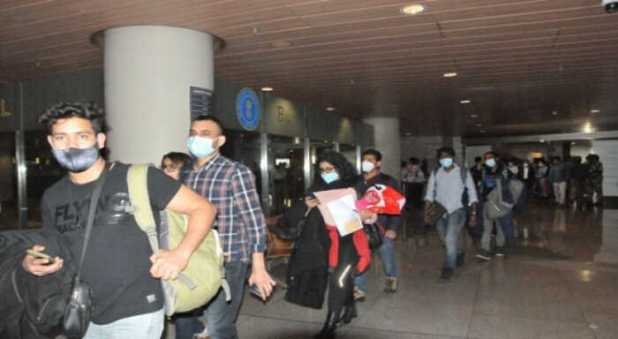
By Ashish Srivastava New Delhi, March 4 : The war in Ukraine has brought to limelight a fact that has largely remained unnoticed so far in the context of India – a large number of Indians studying medicine in the Central Asian country. Prior to the Russian attack, how many would have thought here that Ukraine would be hosting nearly 18,000 Indian students? While the government here is struggling to evacuate the Indians from Ukraine, many wonder how and why are so many Indians studying medicine in that country. The reasons are – huge deficit in the number of medical seats in government colleges and massive costs in private medical colleges in India. Last year, the total number of MBBS seats available across India, including both government and private, was 83,000, for which there were 16 lakh applicants who appeared for the NEET-UG. As the government seats fall short immensely, the private medical colleges are out of reach of a majority of the applicants as each seat in a private medical college in India costs somewhere between a whopping Rs 80 lakh to Rs 1 crore for the 4.5-year course. In comparison, the full MBBS course in Central Asian countries like Ukraine costs an Indian student around Rs 20-25 lakh. Thus, it is because of affordability that many parents choose to send their wards to such countries for MBBS course. Ukraine’s Ministry of Education and Science states that around 80,000 international students study in the country, with Indians making up about a quarter of the total foreign students. The tuition fees of private medical colleges in Ukraine is cheaper in comparison to colleges in India, said 22-year-old Vibhav Kalmani from Pune who is in the final year of MBBS there at Telinpore National Medical versity. “After I finished my 12th, I tried for MBBS in India but despite 2 attempts for NEET, I couldn’t secure a seat in a government medical college,” he said. According to Vaibhav, admission to any private college is expensive in India, compared with options in Ukraine or Russia. The tuition fees are marginally higher than government colleges in India but the competition to get in is much less, he said. “Rs 20 lakh for a five and a half year investment is enough to complete MBBS in Ukraine while the similar education costs around 1 crore in private medical colleges in India,” Vaibhav added. The Indian students choose Ukraine also because several famous medical schools don’t take an entrance exam to provide a seat. Recently, on parliamentary affairs minister Pralhad Joshi had also stated that about 90% of Indians who study medicine abroad fail to clear qualifying exams in India. “Admission to any private college is expensive in India, compared with options in Ukraine or Russia, where a 5 and a half year investment of Rs 30 lakh is enough to complete MBBS studies,” he said. Meanwhile, the students also said that the availability of money also doesn’t guarantee a medical seat in India. According to estimates from the Medical Council of India, only 20,000 seats are reserved for the management quota in private institutes. According to data shared by the Health Ministry in Lok Sabha in December 2021, there were 88,120 Bachelor of Medicine Bachelor of Surgery (MBBS) seats and 27,498 Bachelors of Dental Surgery (BDS) seats available in India, In comparison, 16 lakh candidates had registered for the National Eligibility cum Entrance Test (NEET) last year. In 2020, the figure stood at 13 lakh. Along with the low cost of education and ample seats, the fact that courses in Ukrainian and Russian medical colleges are recognised by the World Health Organisation and are also valid in India, along with the European Council of Medicine, General Medical Council of the UK as well, provide children with wider opport ties to settle outside. Students after returning from Ukraine have to pass Foreign Medical Graduates Exam (FMGE) mandated by MCI to get a license to practice medicine in India. However, the passing average still proves gambling for the students as only around 20 per cent among them pass the licencing test, said an MCI official. “Around 4,000 students take the test every year, but only 700 of them pass it,” according to the senior official. The Indian medical fraternity criticises the students from medical colleges in Ukraine and Russia as they are said to be heavily reliant on theoretical aspects while lacking in providing students with practical exposure. “This is the prime reason why these students do not pass the qualifier test back in India after completing their course abroad,” said Vineet Ojha, a senior faculty at Baba Banarasi Das Medical College in Lucknow. ASH AKK ING

